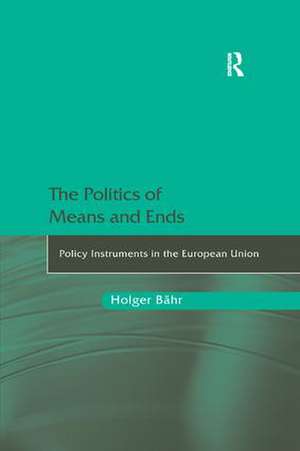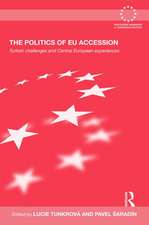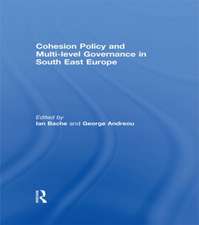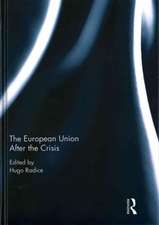The Politics of Means and Ends: Policy Instruments in the European Union
Autor Holger Bähren Limba Engleză Paperback – 23 noi 2016
| Toate formatele și edițiile | Preț | Express |
|---|---|---|
| Paperback (1) | 469.34 lei 6-8 săpt. | |
| Taylor & Francis – 23 noi 2016 | 469.34 lei 6-8 săpt. | |
| Hardback (1) | 1054.71 lei 6-8 săpt. | |
| Taylor & Francis – 28 noi 2010 | 1054.71 lei 6-8 săpt. |
Preț: 469.34 lei
Nou
Puncte Express: 704
Preț estimativ în valută:
89.81€ • 94.00$ • 74.75£
89.81€ • 94.00$ • 74.75£
Carte tipărită la comandă
Livrare economică 31 martie-14 aprilie
Preluare comenzi: 021 569.72.76
Specificații
ISBN-13: 9781138260962
ISBN-10: 1138260967
Pagini: 228
Dimensiuni: 156 x 234 x 12 mm
Greutate: 0.45 kg
Ediția:1
Editura: Taylor & Francis
Colecția Routledge
Locul publicării:Oxford, United Kingdom
ISBN-10: 1138260967
Pagini: 228
Dimensiuni: 156 x 234 x 12 mm
Greutate: 0.45 kg
Ediția:1
Editura: Taylor & Francis
Colecția Routledge
Locul publicării:Oxford, United Kingdom
Cuprins
Contents: Introduction; Explaining policy instruments; Comparing policy areas; European environmental policy; European social policy; Policy instruments in European environmental policy and European social policy; Conclusion; Annex; Bibliography; Index.
Notă biografică
Holger Bähr is a Research Assistant at the University of Konstanz, Germany
Recenzii
'Policy instruments are suddenly back in vogue again, not least in the European Union (EU) which is struggling hard to find new ways to govern complex problems without making the scale of "Brussels" greater. This book offers the first systematic comparative analysis of how and why new (and older) policy instruments are used in the two very different areas of social and environmental policy. For those who find the governance of the EU deeply puzzling, this book is a "must read".' Andrew Jordan, University of East Anglia, UK
Descriere
A systematic comparison of the techniques used to implement policy goals in European environmental policy and European social policy. Holger Bähr argues that decisions made by political institutions and the politicization of policy problems both constrain political actors and provide them with the opportunity to transfer their preferred policy instruments into policy outputs at the end of the decision-making process.



















